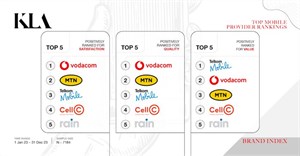Government plans for mobile networks could be disastrous

Mobile internet access and services (via cell phones, tablets and laptops) will reportedly be adversely affected. The policy will see the effective expropriation of some of the mobile network operators (MNOs) private assets of spectrum and infrastructure, which means continued essential industry investment is likely to dry up.
Single network controlled by government
According to the FMF, the government intends to use high demand spectrum to build a single wireless open access network (WOAN) – a monopoly network. This means that as MNOs migrate from the older 2G and 3G spectrum to 4G/LTE and beyond, they will be forced to use the single network controlled by government.
Lack of investment by the big players will mean the reduction in quality and choice for many mobile device users. Forget the future of fast, cheap, reliable access and choice of new and better technologies, South Africa would fall behind as investment declines and network infrastructure becomes old and unreliable.
The contents of the ICT Policy outlined in the white paper released in October 2016 may impact almost everyone if implemented in its current form. Development of the Internet of Things (IoT) could be at risk and technological advancement in the telecommunications space may stall.
Much to alarm and concern the industry
At FMF media briefings in Johannesburg and Cape Town last week, industry experts, Dobek Pater, managing director of Africa Analysis, a leading consulting firm in ICT, and Adrian Schofield, vice president of the Institute of IT Professionals South Africa (IITPSA) agreed that, although the intentions of the white paper were good, there is much to alarm and concern the industry and the uncertainty and lack of clarity in how the policy will be implemented will disrupt the essential investment to keep the industry moving with advances in technology.
Today the big operators pour billions into building new infrastructure and maintaining existing networks.
Said Pater: “The policy envisages what amounts to nationalisation and the ‘recovery’ of some of the privately allocated spectrum. The lack of detail of the structure of the proposed WOAN is an investment disincentive to the large infrastructure providers. The current ICT Policy White Paper is significantly different from previous consultative documents and, in its current format, may have a substantially negative effect on the South African economy, the ICT sector, the MNOs and the consumer. It is not a given that various elements of the ICT Policy will be an automatic failure, although the probability of failure of some critical elements is high”.
"Government is trying to control, not facilitate, communications"
In Cape Town, Schofield agreed: “Like 25 years ago, the government is trying to control, not facilitate, communications. The digital dividend has not, and will not, be realised and government, which has so far failed to deliver on a single SA Connect goal, has little chance of delivering on this ambitious policy”.
He said that the white paper contained “good words without foundation” and it talks of bringing innovation and competition to the industry, while promoting the creation of a monopoly with no competitors. “This,” he said, “is nonsense.”
The ICT Policy White Paper proposes uprooting a successful model and replacing it with a rare, unproven structure and probable failure. Both speakers stated that none of the examples given by the Minister are open access success stories. Instead, there are no countries that have completed the successful implementation of a WOAN.
What South Africa needs
South Africa needs more competition and new players to bring expertise and infrastructure investment funds. Under the proposed structure, new entrants, funds and knowledge will be discouraged.
According to the FMF, the white paper is likely to result in a constitutional challenge tying up any proposed bill and the industry for years. It is of the opinion that next wave of mobile internet technology will bypass South Africa and that a single government-managed infrastructure risks the country investing billions in the wrong technology with no road back.
















